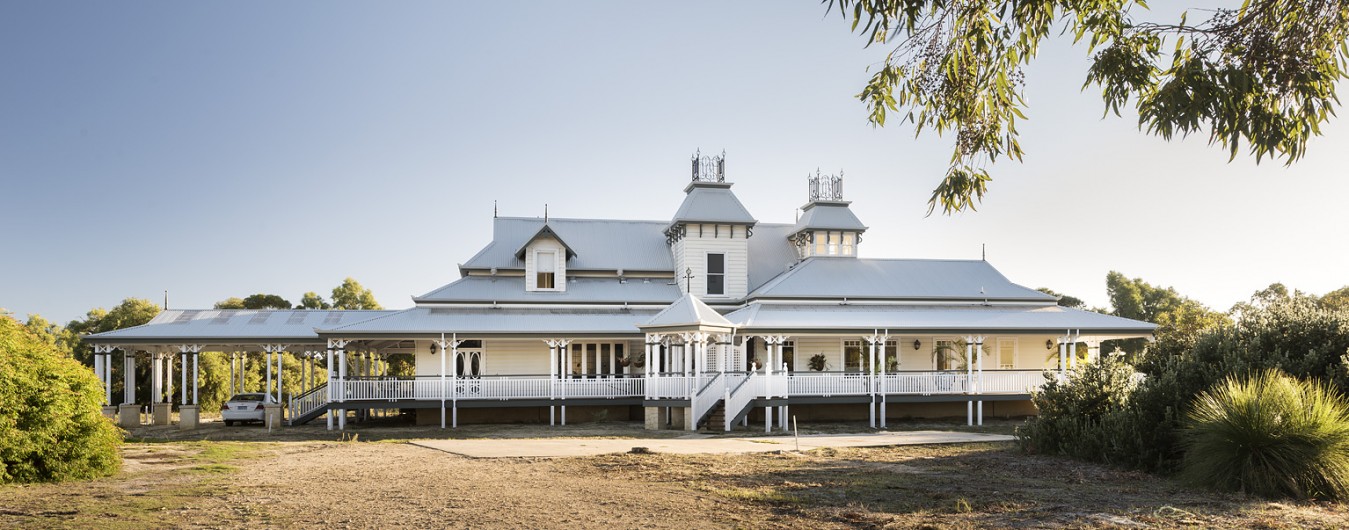A Green House – Australian Response to Climate Change a Crucial Role for New Federal Government
11 September 2010
Ray Wills, CEO
Western Australian Sustainable Energy Association Inc. (WA SEA)
Website: www.wasea.com.au
Email: info@wasea.com.au
Australians want to see a serious commitment to action on global warming, and the new Prime Minister must work with the Greens and Independents to make the Australian Parliament, the operation of government, and the Australian economy more sustainable says by the WA Sustainable Energy Association Inc. (WA SEA).
‘Australia has voted and by electing a Parliament with green credentials, Australians have sent a clear message it is time to act on climate change, make Australia more energy efficient, and build renewable energy generation to power Australia in the 21st Century,’ says WA SEA Chief Executive, Prof Ray Wills.
‘The UN’s Intergovernmental Panel on Climate Change has been in operation for twenty two years. The world should have acted on global warming in the last century when science delivered the first strong warnings on global warming. Not enough action has been taken, and we are now out of time to avoid significant climate change. But, we must act decisively now if we want to avoid even more dangerous change in our climate,’ says Prof Wills.
‘We must fundamentally change the way we think about energy and how we do business. And we must act,’ says Prof Ray Wills.
‘To this end, specific incentives must be developed to deliver renewable energy projects outside of the National Energy Market and to islanded grids and isolated domestic and commercial energy users,’ says Prof Wills.
WA SEA calls on the new Gillard Government to work with COAG to develop a nationally consistent feed-in tariff (FiT) for renewable energy. The introduction of a FiT in overseas countries has led to significant growth of the renewable energy industry, particularly solar. A gross metered FiT mst be made available to all forms of renewable energy with tariffs set at different levels to reflect the value of embedded generation in domestic, commercial and industrial scale generation. Feed in tariffs are an effective market mechanism that will ensure the most efficient renewable energy technologies, as these deliver the most cost-effective investments under a FiT.
WA SEA, Australia’s largest energy chamber, says a new Federal Government must also walk the talk – measures being encouraged for business and the community must be rolled out and demonstrated as a greater priority in government operations. All government departments and agencies must be instructed to increase energy efficiency and install renewable energy on all existing government facilities and other public buildings. Further, the Government must ensure new buildings built on the public purse are energy efficient buildings and powered by renewable energy.
Further, mandatory installation of the most affordable and appropriate technologies such as solar hot water, solar air-conditioning, heat pumps and geothermal on all new houses and buildings and across new precincts, as well as requirements of all renovation and brown field redevelopment approvals, as well as on all existing government facilities and public buildings, will deliver long term savings to building owners and tenants, and to the tax payer.
The new Government has in place a target of generating at least 20 per cent of Australia’s electricity supply generated from renewable sources within less than ten years. Getting there will require immediate action to put in place the market structures that will allow business to respond and build the required generation facilities to meet the target according to WA SEA.
‘Responding to climate change will create new business, new employment opportunities, and a more sustainable economy in both urban and regional Australia.’
‘Renewable energy generation, combined with measures for better energy efficiency, means future proofing our economy and will produce a sustainable economy with fewer inflationary pressures for Australians,’ says Prof Wills.
‘Australia’s renewable energy sources are vastly greater than our fossil fuel resources, renewable energy is generally more labour intensive, and by the nature of the source, more broadly distributed across regions. With a better employment factor, renewable energy projects can lead to growth of local communities in rural Australia, and bolster a broad range of skills in agricultural regions.’
‘We do not have decades to respond to climate change – we have already had decades. It is time to take the heat out of this problem, and how we produce and use energy is the key to solving it.’
WA SEA congratulates all Minister’s on their appointments and notes that sustainable government will only be delivered with the collaboration of all portfolios:
Full Gillard Government Ministry:
Prime Minister: Julia Gillard
Deputy Prime Minister and Treasurer: Wayne Swan
Foreign Affairs: Kevin Rudd
Jobs, Skills and Workplace Relations: Chris Evans
Regional Australia, Regional Development and Local Government, Arts: Simon Crean
Defence: Stephen Smith
Health and Ageing: Nicola Roxon
Families, Housing, Community Services and Indigenous Affairs: Jenny Macklin
Infrastructure and Transport: Anthony Albanese
Broadband, Communications and the Digital Economy: Stephen Conroy
Innovation, Industry and Science: Kim Carr
Finance and Deregulation: Penny Wong
Schools, Early Childhood and Youth: Peter Garrett
Attorney-General: Robert McClelland
Agriculture, Fisheries and Forestry: Joe Ludwig
Sustainable Population, Communities, Environment and Water: Tony Burke
Resources, Energy and Tourism: Martin Ferguson
Immigration and Citizenship: Chris Bowen
Trade: Craig Emerson
Climate Change and Energy Efficiency: Greg Combet
Human Services, Social Inclusion: Tanya Plibersek
Home Affairs and Justice, Privacy and FOI: Brendan O’Connor
Employment Participation and Childcare: Kate Ellis
Indigenous Employment and Economic Development, Sport, Social Housing and Homelessness: Mark Arbib.
Small Business, Assistant Minister for Tourism: Nick Sherry
Veterans Affairs and Defence Science and Personnel: Warren Snowdon
Assistant Treasurer, Financial Services and Superannuation: Bill Shorten
Mental Health and Ageing: Mark Butler
Special Minister of State: Gary Gray
Defence Materiel: Jason Clare
Editors notes:
1. The Western Australian Sustainable Energy Association Inc. (WA SEA) is a chamber of enterprises that has a growing membership of over 360 industry members from a diversity of businesses. WA SEA is the largest energy energy chamber in Australia.
2. Prof Ray Wills is Chief Executive of the WA Sustainable Energy Association, Australia’s largest energy industry chamber, and Adjunct Professor with The University of Western Australia’s School of Earth and Environment where he contributes to the academic program and lecturing on the science, economics and politics of environmental change.
3. WA SEA bringing you the Energising SE Asia Conference 23-26 March 2011, Perth.









